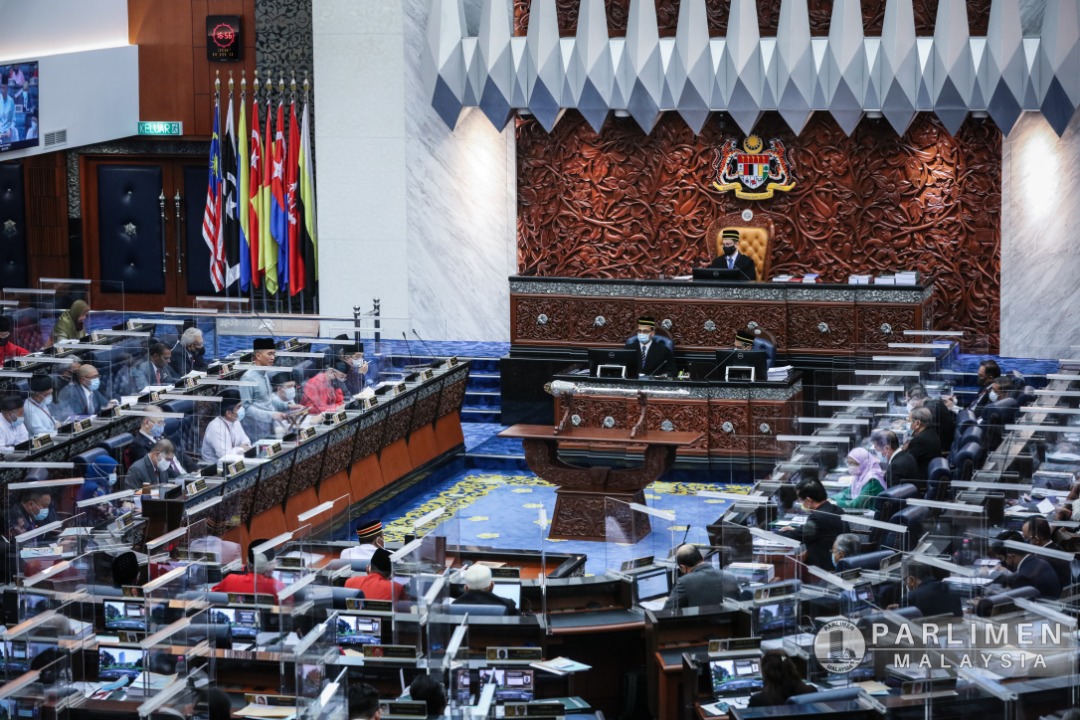By Marissa Nazeera
KUALA LUMPUR, 2 August 2022: The proposed anti-hopping law was passed at the House of Representatives with 209 votes in favour of it. It is now waiting for the Senate’s approval and will then be presented before the Yang di-Pertuan Agong for his royal ascent.
What is anti-hopping?
The term anti-hopping or alternately referred to as floor-crossing, defection, or party-switching is used to describe the act of members of parliament that defects to represent another political party after winning seats.
Anti-hopping in Malaysia
After the 14th General Elections that was held in 2018, it was found that 39 members of parliament have defected to another political party. But, prior to that, none of the defections had affected matters at the national level. Defections only took place at the state level as can be seen in the 2009 case of the Perak constitutional crisis.
Why was the bill introduced and what you should know about it?
The amendment included a clause where a member of parliament who has won a seat, will then lose it if he defects himself to represent another party. The member must vacate their seats first if they wish to quit the party and defect to another.
This is in line with its main objective to ensure political stability and to uphold the people’s mandate as the member of parliament wins the seat on a party ticket. Hence, the bill is introduced to assure the members of parliament only serve and represent their own parties.
The current trend of party-hopping has seen its rise in Malaysia for the past two years has jeopardised the practice of democracy. However, the anti-hopping law in itself may not prevent another Sheraton Move as stated by Wan Junaidi Tuanku Jaafar in May 2022. The Sheraton Move that took place in 2020 saw BN, Bersatu, PAS and a faction led by Azmin Ali, former PKR deputy president, joining forces to take over the then government.
This is reaffirmed by the ninth Prime Minister of Malaysia, Ismail Sabri who said, œa membership of the member of parliament in a coalition, would not be taken into account as the main objective of the amendment is on the membership of the member of parliament in any political party.
The progress of law in Malaysia
The constitutional case of Nordin bin Salleh has now found its new light. The member of parliament is now prohibited from crossing the floor as it is now one step closer to be constitutionally amended.
Nonetheless, there would not be any action taken against previous cases of members of parliament defecting to another party as the bill would not have any retrospective effect.

In a press release by Malaysian Bar Council in 11 April 2022, it further elaborated on the relevancy to amend article 48 of the Federal Constitution rather than article 10:
œThe Malaysian Bar therefore calls upon the Government not to amend Article 10 of the Federal Constitution and to withdraw its proposals for the same. We further call upon the Government to remove the disqualification provisions contained in Article 48(6) of the Federal Constitution. Finally, we call on the Government to quickly introduce anti-hopping legislation as promised, without the need to empower political parties to abuse their position by purportedly expelling members who disagree with their party and immediately triggering a by-election.
Even so, the bill is still a one-step closer for the government to further introduce the anti-hopping law to ensure healthier political activities in Malaysia. It is only right that the expectations, demands and desire of the society must be protected. Thus, the anti-hopping law should be one that is clear, valid, efficacious and can give practical benefits to the people.***
